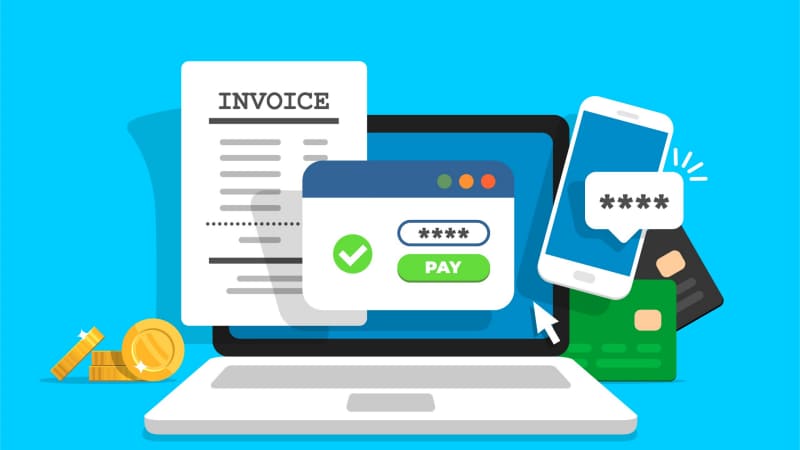Default vs delinquency: How they impact credit

We've all been there—whether it's missing a payment due to forgetfulness or missing a bill because we're distracted by the chaos of life, we've all made mistakes when it comes to our financial health. The important thing here is that we bounce back and try to correct any mistakes we make.
But what happens if we don't make the necessary adjustments in a timely manner—what then? This is when you may run into issues like "default" and "delinquency."
- Delinquency: occurs when a borrower falls behind on payments for even a short period of time
- Default: occurs when a borrower is not fulfilling the terms of a credit card or loan agreement by not consistently making payments or failing to make them entirely over a longer period of time
You may have heard these terms in regards to a loan or even seen them on a credit report, but what do they actually mean and how can they impact your credit? Both fall under the category of missed payments and can impact your score depending on the severity of the situation. If you're looking to examine how your specific credit score could be affected by these or other actions, enroll in Chase Credit Journey®, a free online tool that will provide you with a variety of insights about your score as well as steps to improve your credit health or habits.
In this article, you will learn about:
- What loan delinquency means
- Student loan delinquency and defaults
- What it means to default on a loan
- How defaults and delinquency impact your credit
- Monitoring your credit score
Loan delinquency
Loan delinquency happens when you miss your payments by even just 1 day. However, depending on your agreement with your lender, it's possible that you could have a grace period of a few days to make your payment.
If you continue to miss your payments for an extended period of time, your loan could face delinquency. Similar to defaults, getting to this point means you have harmed your payment history, thus negatively impacting your credit score.
Put simply, delinquency is the stage you are in when you've begun to miss payments. You could remain in a state of delinquency for a long period of time before your account goes into a default. During this time, it's essential to try to pay off your debt as soon as possible. Doing so can help prevent further consequences outside of hurting your score, such as having access to less credit and difficulty renting apartments or homes.
Student loans
Student loans are a type of unsecured loan that you may take out to help cover the costs of your higher education. Like other loans, your student loan can be seen as delinquent by missing your payment by just 1 day. Until you can repay the debts you owe—or make other changes such as deferring your loan or adjusting your payment plans—your loan will remain delinquent.
Student loans can go into default if they remain delinquent for a period of time. Once they go into default, student loans can face certain consequences. For example, if the student loan is a federal loan, a default could lead to the government trying to collect your payments and may halt further assistance with your education costs. There could be an attempt to collect other forms of money such as Social Security checks or tax refunds.
If you default on a student loan, the consequences to your credit score are similar to other types of loans. Your score could drop significantly and you'll have a negative remark on your credit report, making it more of a challenge to get approvals for future loans, credit cards and more.
Defaulting on a loan
If you've stopped making payments towards a loan for an extended period of time, you could be on the way to defaulting on that loan. There are different types of loans that you can default on (which we will get into detail later), but generally, according to the Code of Federal Regulations, missing payments for about 270 days (roughly 9 months) can result in a default.
In short, defaulting means you've stopped making payments. The consequences of defaulting on a loan vary depending on the kind of loan at hand. Let's dive into these different types of loans below.
Defaulting on a mortgage loan
A mortgage is a type of loan you take out when you are looking to buy a home. It is a type of secured loan, meaning that there are assets involved. If you've taken out a mortgage and miss your payments for an extensive period of time, you could face some unfortunate consequences. Your home could be foreclosed, meaning the lender can repossess your home.
Defaulting on a mortgage can result in some serious damage to your credit score. In addition to the late payments harming your payment history, which is a major factor in determining your score, having a foreclosure on your report will be seen as a derogatory mark. This can remain on your report for up to 7 years and can harm your credit score further.
Defaulting on a car loan
A car loan is another type of secured loan due to the fact that your car is considered a form of collateral. A lender can repossess your car should you fail to make your auto loan payments, if or when a lender repossesses your vehicle is dependent on the terms of your loan and the state you live in.
Repossessions are also considered derogatory marks that can stay on your report for up to 7 years. Negative marks like repossessions can make it difficult to get approvals for future accounts or cards of your choice. Repossession, in addition to the late payments and defaulting on the car loan, can hurt your score substantially. Finally, repossession means your car is taken from you. Not only does your credit card suffer, but you lose your large purchase as well.
Credit card default
Prior to default, you may first face credit card delinquency (note, this is different from loan delinquency, which we will describe in more detail later). Credit card delinquency happens when you fail to make a credit card payment after a certain period of time (for example, 30 days). The longer the duration goes, the more at risk you are for defaulting on your credit card account. This alone may hurt your credit score significantly, as late payments can negatively impact your payment history, which is a major factor in calculating your credit score.
At this point, your issuer may have possibly sent your debt to a collections agency in an attempt to get you to repay your debts. Collections can remain on your credit report as a derogatory mark, similar to repossessions and foreclosures. This could further hurt your score and make it more difficult to get approved for the credit card accounts of your choosing.
How defaults and delinquency impact your credit
As you can see, both defaults and delinquencies can have significant impacts to your credit score. This is due to the fact that you've missed payments, which hurts your payment history and impacts your credit score. The impact will vary depending on your current credit score as well as how quickly you make repayments after facing delinquency or default. For example, if you can make proactive changes and begin repaying your debts, your score may not be as low as if you were to wait until the loan goes into default or you face collections.
Monitor your credit score
No one likes to hear the terms "default" or "delinquent" when it comes to their finances. That's why keeping an eye on your credit score can help provide insights into your overall financial health and help you find ways to avoid further consequences down the line. If you've faced delinquency or default, and want to recover from it, take a deep breath—there are options to help you rebuild your credit.
While you can't remove the negative remarks from your report until they fall off after 7 years, you can make small changes to help improve your payment history, which will reflect positively in your score.



